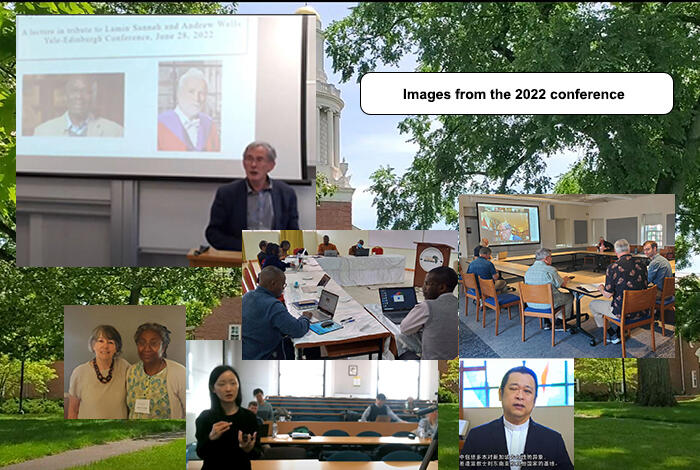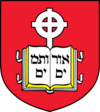Andrew Walls (University of Edinburgh) and Lamin Sanneh (Yale University) founded the Yale Edinburgh group in 1992. The Group’s conferences and LISTSERV facilitate discussion and exchange of information about the development of world Christianity and historical aspects of mission, with special emphasis on the sources for documentation. The conferences have been hosted by the Centre for the Study of World Christianity at the University of Edinburgh and the Yale Divinity School.
For more information about the Yale-Edinburgh Group, email world.christianity@yale.edu.
2025 Yale-Edinburgh conference announcement
For the first time since its inception the next Yale-Edinburgh conference will be held in the Global South. Mackenzie Presbyterian University in São Paulo, one of Brazil’s largest private universities, has kindly agreed to host the conference in their Higienópolis Campus on 28-30 May 2025. The theme will be ‘Christianity, Democracy, and Nationalism.’ For the first time the conference presentation languages will include Portuguese, and Spanish. See the call for papers below. For more information, email Pedro Feitoza, Lecturer in Latin American Christianity, School of Divinity, University of Edinburgh, pfeitoza@exseed.ed.ac.uk.
Deadline for proposals extended
Proposals for Yale-Edinburgh 2025 will now be accepted through 31 January 2025. See below for more information.
Yale-Edinburgh 2025 Theme
Yale-Edinburgh Conference on World Christianity and the History of Mission
Universidade Mackenzie, São Paulo, Brazil
28-30 May 2025
Christianity, Democracy, and Nationalism
Christian communities around the world have long developed an ambiguous and troubled relationship with nationalist movements and processes of democratisation. They can be seen on all possible sides of the religious, political, and ideological divides: at times fostering patriotic sentiments, at times falling victim to nationalist pride; at times providing theological rationale and exemplary models for movements of racial, gender, and class equality, at times portraying social hierarchies as organic and God-given. Such interactions between religious communities, the authority of the state, and the imagining of the nation shaped decisively the historical experiences of the modern world and exert a profound impact in the political and religious configurations of our time. In the Global South, local and indigenous leaders educated in Christian institutions rallied against foreign colonial control and laid the groundwork for movements of independence. We can think of the Latin American Catholic clergymen in the nineteenth century and their role in fostering “creole patriotism” against the Iberian colonisers, or the young leaders educated in Protestant missionary schools in Africa and East Asia who around a century later challenged Western colonialism. Nationalist ideals, however, could also be leveraged against religious minorities. Catholics in nineteenth-century Britain, for instance, were seen as disloyal to the monarchy on account of their attachment to Rome, while Christian conversion in post-1949 China and postcolonial India was often deemed as detrimental to the nation. In yet another way, Christian thinkers and laypeople in the modern era conceived themselves as members of a universal fellowship crossing territorial, ethnic, and linguistic boundaries, sentiments that challenged aspects of nationalist pride. Much has been written in recent years about the simultaneous revival of populist regimes and charismatic Christianity worldwide, especially their impact on processes of democratisation. The intersection of these two forces have contributed to the polarisation of civil society and the destabilisation of democratic systems of checks and balances in the United States, Brazil, Colombia, the Philippines, and Zimbabwe. Conversely, Christians of different persuasions have both organised large-scale mobilisations in favour of the enfranchisement of social and religious minorities and deployed theological arguments to withstand political authoritarianism. Examples of this abound and range from the Catholic critique of totalitarianism in interwar Europe, the evangelical participation in the Civil Rights movement in the United States, the militant Christianity of Latin America in the Cold War, to grassroots movements of popular theological reflection and action in East Asia.
For our 2025 conference we invite papers that interrogate the relationship between democracy, nationalism, Christian communities, and the Christian faith around the world. We especially welcome historical case studies exploring the relationship of Christian bodies with changing sociopolitical circumstances; ethnographies that illuminate the religious and cultural imaginaries of Christian communities and their lived realities; theological interrogations into the politicisation of Christian religion; comparative studies highlighting patterns of interactions between religious communities, democratisation, and nationalism; and any other pertinent topics.



